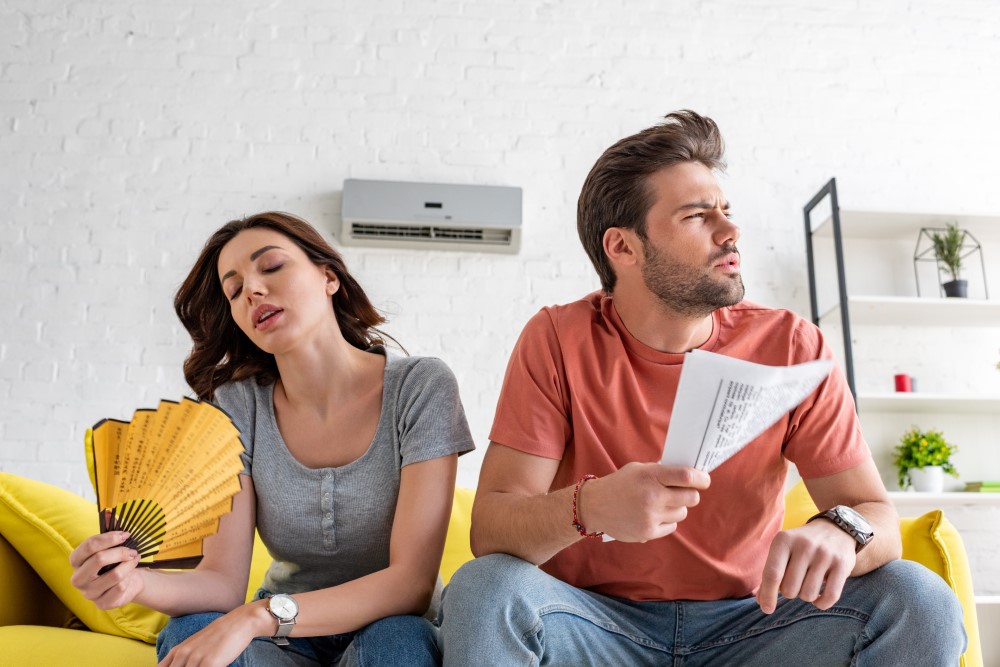
young woman with hand fan and handsome man with newspaper suffering from heat at home
It’s the middle of summer, and you’re enjoying a nice, cool breeze in your home. Suddenly, the air stops blowing, becoming incredibly hot and stuffy. You check on your HVAC unit and find it’s not working. This can be a very frustrating experience, especially if it happens in the middle of summer. Many people don’t realize that there are a few different ways that your HVAC unit can fail. Here, we’ll discuss four of the most common ways your HVAC unit can fail and what you can do if it does.
The Air Filter is Dirty
One of the most common reasons your HVAC unit may stop working is that the air filter is dirty. When the air filter is clogged with dirt and debris, it can restrict airflow and cause your HVAC unit to work harder than it needs to. This can lead to several problems, including decreased efficiency and increased wear and tear. If you suspect your air filter is dirty, replace it with a new one.
The Thermostat is Set Incorrectly
Another common reason your HVAC unit may stop working is that the thermostat is set incorrectly. If the thermostat is set too high, it can cause your HVAC unit to overwork itself and eventually break down. Conversely, if the thermostat is set too low, it can cause your HVAC unit to stop working altogether. Be sure to check the thermostat and make sure it is set to the correct temperature.
The Evaporator is Leaking
The evaporator is responsible for removing moisture from the air. If the evaporator leaks, it can cause your HVAC unit to stop working. If you suspect your evaporator is leaking, be sure to have it checked by a professional as soon as possible. HVAC repair is not something that you should attempt on your own.
The Condenser is Dirty
When the condenser becomes dirty, it can cause your HVAC unit to work less efficiently. The condenser is responsible for cooling the refrigerant that circulates through your HVAC unit. If the condenser is dirty, it will not be able to effectively cool the refrigerant, which can lead to several problems. If you suspect that your condenser is dirty, be sure to clean it or have it replaced by a professional.
These are just a few of the most common ways that your HVAC unit can fail. By familiarizing yourself with these potential problems, you can be sure to take the necessary steps to prevent them.


